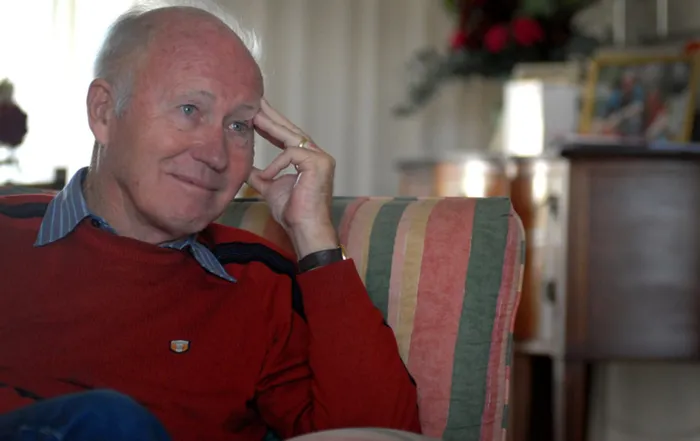R24m ‘a drop in the ocean’ – Crawford-Browne

Terry Crawford - Browne talks about his years of campaining to get the government to probe the controversial arms deal. Photo: Neil Baynes Terry Crawford - Browne talks about his years of campaining to get the government to probe the controversial arms deal. Photo: Neil Baynes
Zara Nicholson
Arms deal activist Terry Crawford-Browne says the admission by Saab of having paid R24 million to defence consultant Fana Hlongwane is a “drop in the ocean” compared to billions he has listed as bribes in affidavits.
While he welcomed the admission, he was not surprised and said it was “now time to talk to Saab and the Swedish government about restitution for the damage they caused to South Africa through selling the arms”.
Allegations of corruption and bribery have resurfaced after an admission by Swedish company Saab’s president, Håkan Buskhe.
“I welcome the development and Saab admitting it, but I have documents that show bribes were double that and the R24m is a drop in the ocean (compared) to the payments of R1.5 billion I have in affidavits from the Scorpions. This is a welcome step but I think there is a lot more to come. Now we have to start talking about restitution for the damage caused to South Africa and we can start uplifting and (making) social issues a priority,” Crawford-Browne said yesterday.
Saab said last week that the R24m was paid by one of its subsidiaries, British Arms manufacturer BAE Systems.
Saab and BAE were partners in the deal to supply Gripen fighter jets, Hawk trainers and other arms to South Africa in 1999 for around R20bn.
For more than 15 years, former banker Crawford-Browne has been campaigning against corruption and the controversial arms deal.
Instead of enjoying his retirement, between 2001 and 2003 he spent R5m in legal and research fees, calling on the government to probe the arms deal and prosecute corrupt government officials.
On Friday, hours after Saab’s statement, Crawford-Browne filed a supplementary affidavit to his Constitutional Court bid to force President Jacob Zuma to launch a judicial commission of inquiry into the arms deal.
“Zuma’s lawyers would argue on the ground of presidential prerogative to decide whether to appoint a commission … but this is a constitutional issue and it would be unconstitutional not to launch an inquiry. We now have the Saab president admitting the bribes, so our government can cancel the contracts immediately; we don’t have to go to court. Cancel the contracts, recover the money and send the Gripens and Hawks back. Hopefully they can learn the lesson that they will be held accountable and it would now be appropriate for us to deal with housing and other social issues,” Crawford-Browne said.
His latest legal battle is being done pro bono by lawyers from the Institute for Accountability in Southern Africa.
Before retiring as regional treasurer for Nedbank in 1986, Crawford-Browne was involved in anti-military and -arms missions. In 1984, Archbishop Desmond Tutu asked him to help with the banking sanctions campaign against the apartheid government.
“We saw the country on the verge of a civil war unless we took action, and we started with the banking sanctions.”
As a member of St George’s Cathedral, he was appointed by Archbishop Njongonkulu Ndungane to represent the Anglican Church at the Defence Review between 1996 and 1998.
“Our stance was that post-apartheid South Africa was grossly over-armed and there was no conceivable threat against the country, so defence was no longer a priority. We saw poverty, health, education, job creation and housing as priority.”
In November 2001 he filed an application to the Cape High Court to have loan agreements for the arms deal set aside. His case returns to the Constitutional Court on September 20.
zara.nicholson@inl.co.za